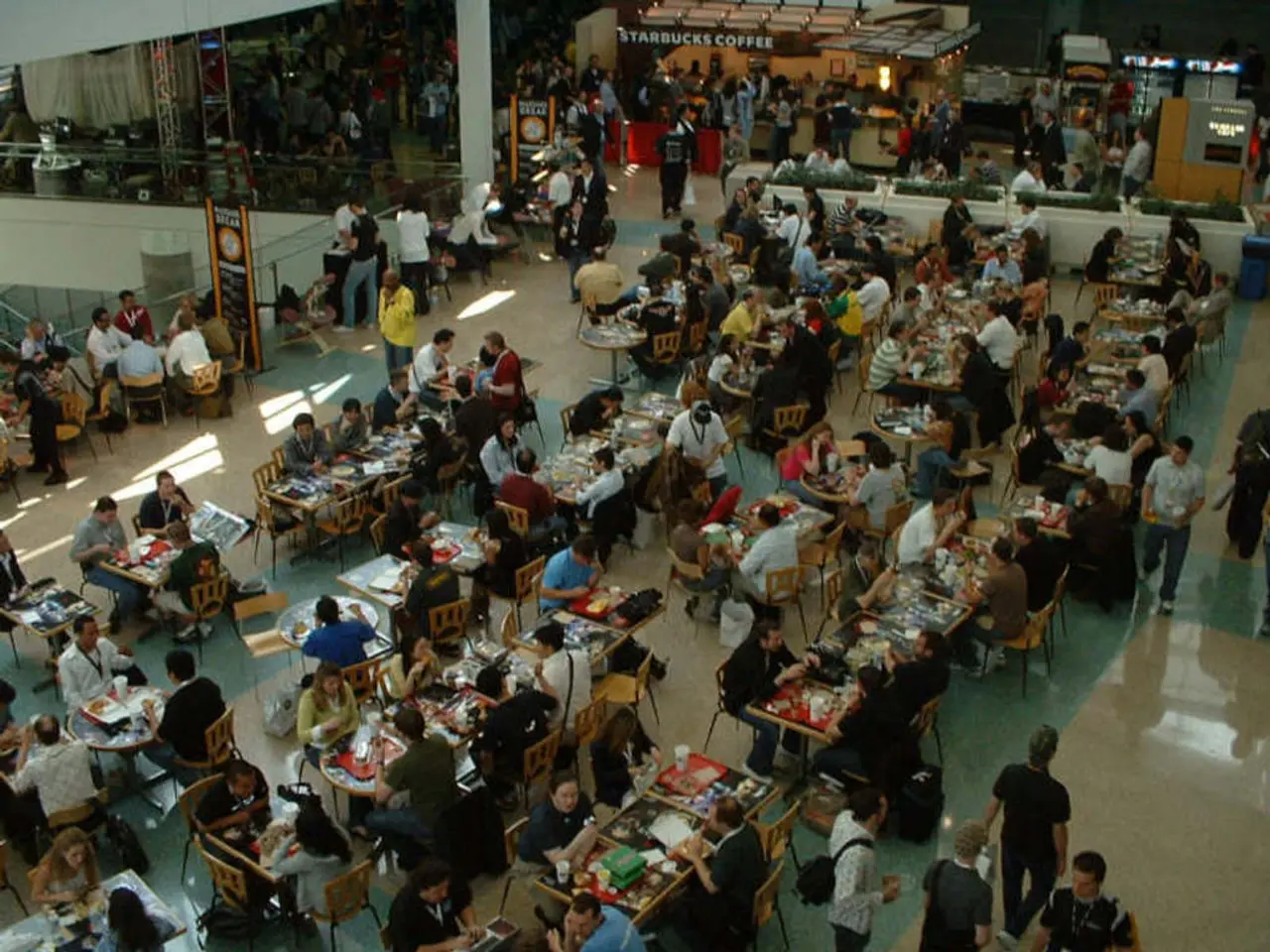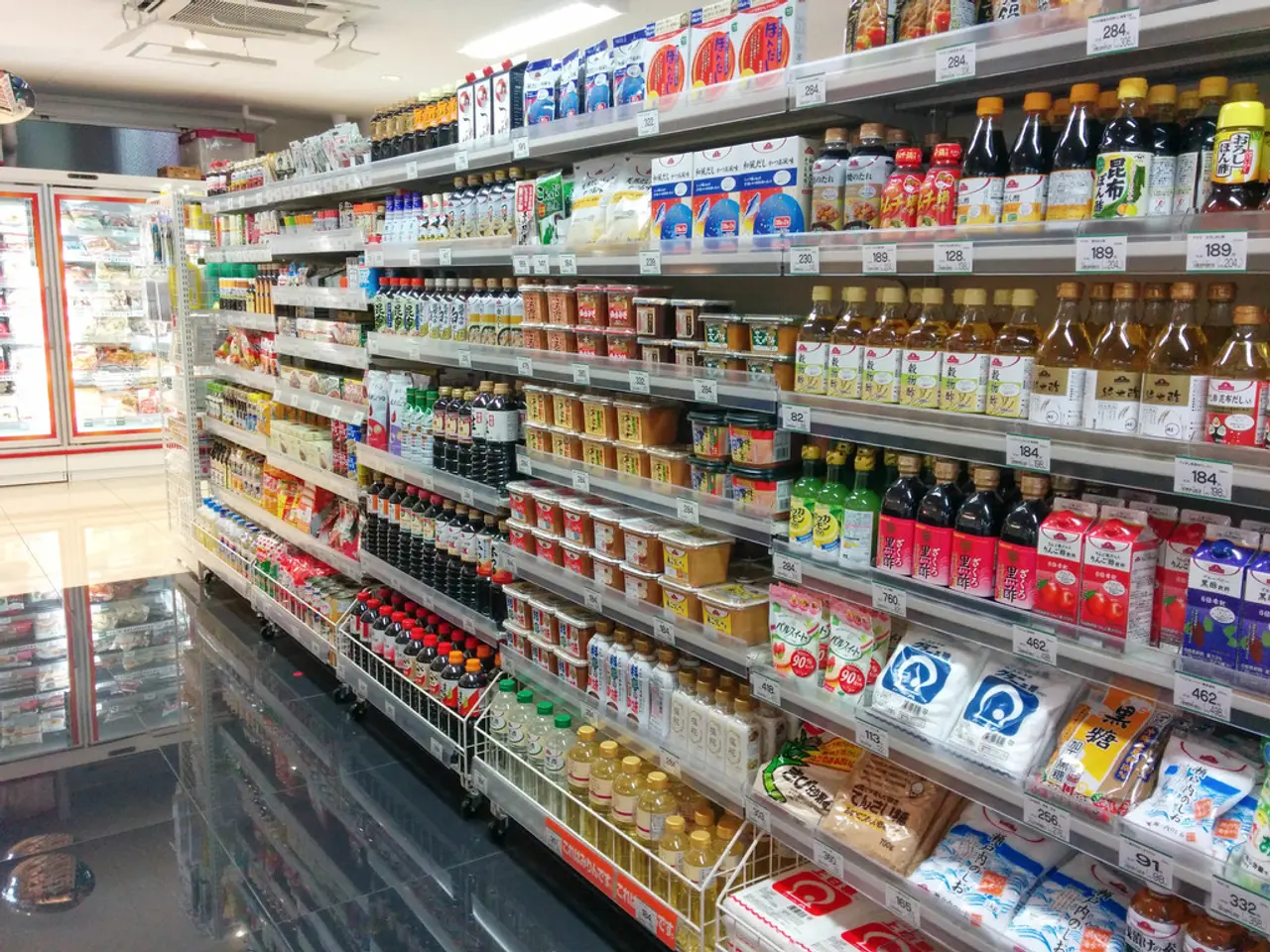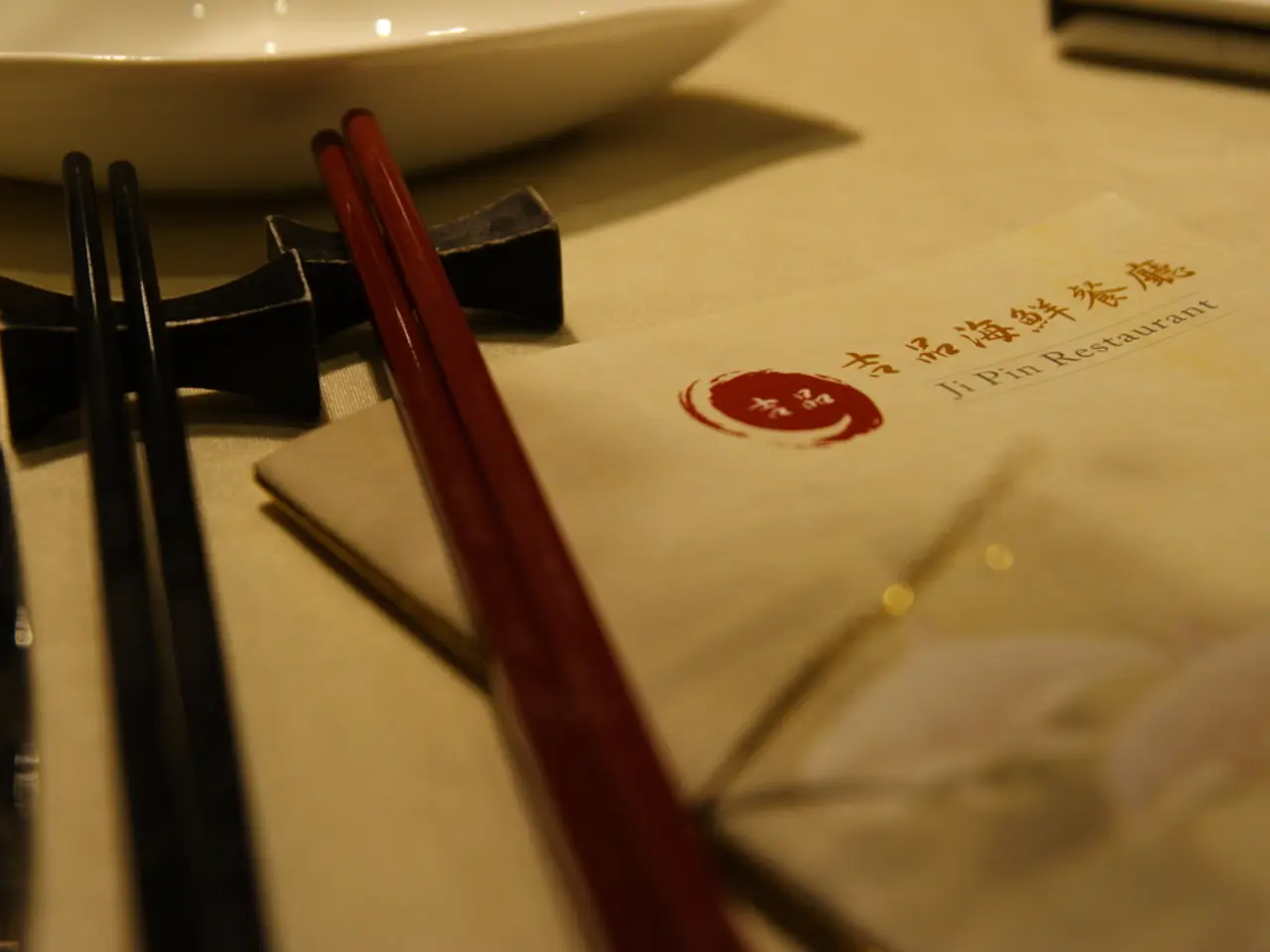Adjustments within the restaurant sector under the Trump presidency
In an insightful discussion recorded during the National Restaurant Association Show this week, the podcast A Deeper Dive, edited by a renowned journalist from Restaurant Business, delves into the significant impact of tariffs and immigration reform on the restaurant industry. The podcast's Editor-in-Chief, known for their expertise in restaurant finance, mergers and acquisitions, and the economy, with a special focus on quick-service restaurants, interviews Michelle Korsmo, the CEO of the National Restaurant Association.
The podcast commences by exploring the effects of tariffs on the restaurant industry. With increased costs on imported goods such as food and beverages, many establishments have been forced to raise menu prices to maintain profit margins. For instance, Clyde's Restaurant Group has increased drink prices by 50 cents to $1 due to rising costs. The tariffs have also disrupted global supply chains, making it harder for restaurants to source ingredients at competitive prices, particularly for products that cannot be produced domestically in sufficient quantities.
The financial burden of these increased costs has eaten into restaurant profits, affecting their ability to invest and expand. A 25% tariff on food and beverage products from countries like Mexico and Canada could cost U.S. restaurants $12.1 billion.
The podcast then turns its attention to the potential impacts of immigration reform on the restaurant industry. While the specifics of the policies were not addressed, it is widely understood that stricter immigration policies can lead to staffing challenges. Many restaurants rely on immigrant workers, and restrictions can exacerbate labor shortages. To adapt, restaurants often automate tasks where possible or adjust staffing models, but these measures come with their own costs and challenges.
The podcast concludes by highlighting the industry's responses to these challenges. Restaurants are adapting by diversifying suppliers, increasing menu prices, and exploring local alternatives to imported goods. Industry groups like the National Restaurant Association are advocating for policy changes to mitigate the impact of tariffs and support small businesses.
However, the ongoing uncertainty surrounding tariffs and trade policies makes it difficult for restaurants to plan investments or expansions, as they must continually adjust to changing market conditions. The podcast, A Deeper Dive, can be subscribed to on platforms such as Spotify and Apple Podcasts, providing valuable insights into the ever-evolving restaurant industry and its dealings with Washington.
- The podcast, A Deeper Dive, delves into the impact of tariffs and immigration reform on the restaurant industry, which is a significant aspect of the business and industry sectors.
- Due to the increased costs on imported goods, many restaurants have been compelled to raise menu prices, negatively affecting their profit margins and capacity to invest in expansion, a matter that touches upon both restaurant finance and the restaurant industry.
- Restrictive immigration policies can exacerbate labor shortages in the restaurant industry, leading to staffing challenges. This issue is part of the broader policy-and-legislation and politics landscape.
- In response to these challenges, restaurants are diversifying suppliers, increasing menu prices, and exploring local alternatives to imported goods, while industry groups like the National Restaurant Association are advocating for policy changes to mitigate the impact of tariffs and support small businesses, demonstrating the industry's resilience in the face of uncertainty and its engagement with general news and current affairs.




